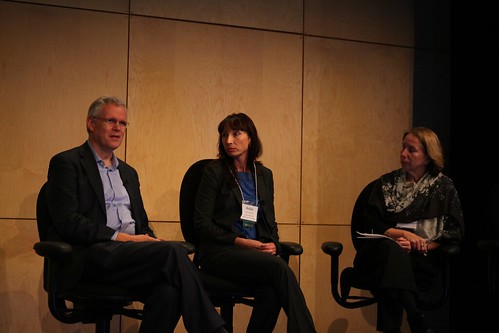Stephen E. Hanson, professor and vice provost for Global Affairs, at University of Washington discussed the policy recommendations developed by Global Washington in partnership with experts in Washington State. They came up with four principles to increase U.S. foreign assistance effectiveness. These include: transparency and accountability to U.S. taxpayers and international beneficiaries; coherence and coordination across efforts and actors to ensure development goals are prioritized; local ownership of policies by those who will be most affected by them; and targeting populations most in need of aid. Hanson also stressed the need for “patient” metrics because global issues are enormous and their solutions are multi-generational. Most initiatives need time to achieve their goals as well as time for those achievements to be measured accurately.
These policy recommendations set the context for the panel on “The Changing Environment of International Development” where Sam Worthington, President & CEO of InterAction, and Anita Sharma of the United Nations Millennium Campaign discussed the challenges, their recommendations, and the current needs of effective public/private partnerships in global development.
Both panelists discussed the lack of funding and support for foreign aid in our current economic climate. While many governments have pledged aid to support the UN Millennium Development Goals, many have yet to make good on these pledges, explained Sharma, and there is a real need for non-governmental entities and constituencies to continue to support global aid efforts. The U.S. security budget would do well to include international development efforts as a matter of national security.
Worthington underscored the shift of foreign aid from economic assistance toward a focus on economic growth in developing countries. He stressed that the biggest challenge to aid, aside from fiscal constraints, is identifying governments who trust their populations to take part in planning their own development. Part of this development will have to come from private entities, which Worthington argued are more focused on the people who will receive assistance, whereas aid from government entities tends to focus first on the relationship with the nation-state before its people.
Submitted by Nina Carduner

